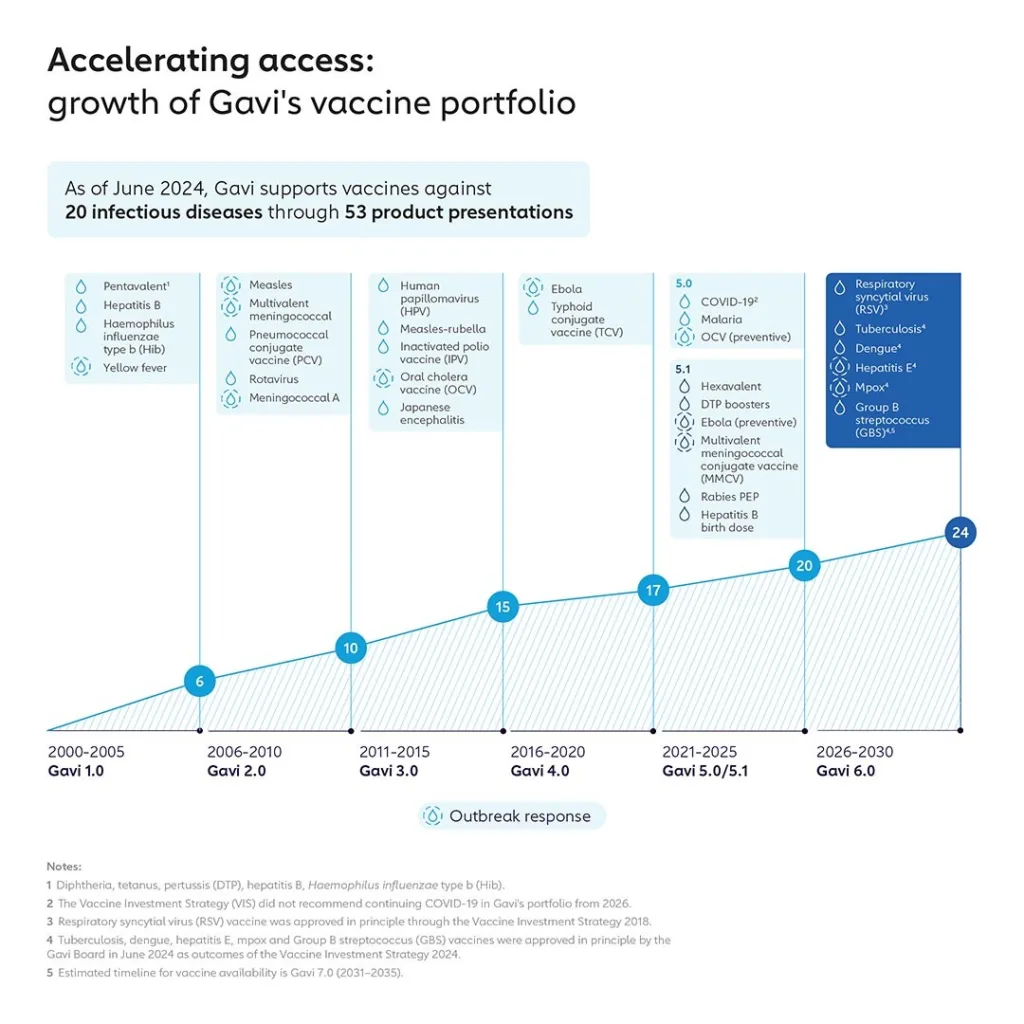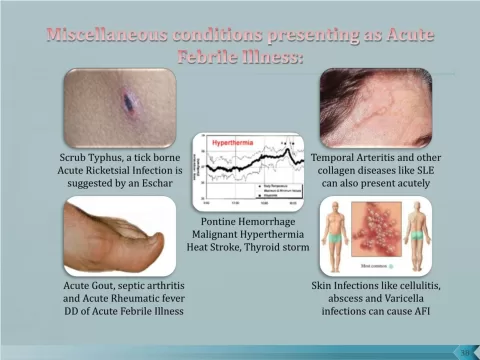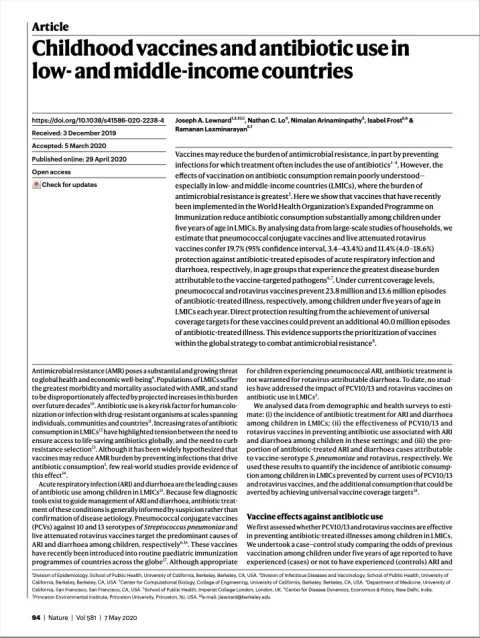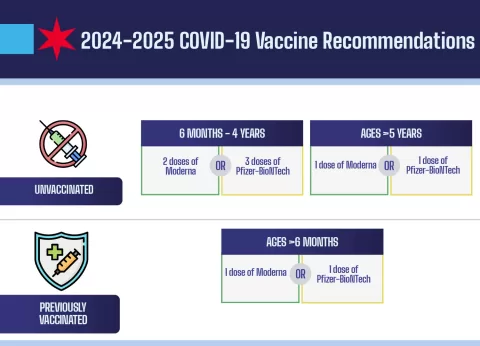Gavi vaccine impact 2024 marks a milestone for global health, with Gavi-supported vaccines saving a record 1.7 million lives—an improvement of about 400,000 compared with 2023—and underscoring the program’s reach. The report shows that the health gains translate into broad social benefits, as communities experience fewer sick days and families regain stability, illustrating how Gavi vaccines extend value beyond clinics. Over the long term, these efforts contribute to the economic benefits of vaccination, with hundreds of billions of dollars in broader societal returns through lower healthcare costs and higher productivity. In 2024, recipient countries paid a record $255 million toward the cost of their own vaccines, signaling increased ownership and investment in sustainable immunization programs. The year also featured the fastest immunization expansion in the alliance’s history, with malaria vaccines reaching millions of African children who bear a large share of the global disease burden.
From a future-facing perspective, analysts describe these outcomes as part of a broader immunization strategy that connects childhood protection with resilient health systems and sustainable development. Experts view the data as a social return on vaccination, with healthier populations driving productivity gains and lowering long-term healthcare costs. In essence, the 2024 momentum signals a coordinated global effort to strengthen routine vaccination programs, accelerate disease prevention, and secure ongoing funding for vaccines and delivery infrastructure.
Gavi vaccine impact 2024: Record lives saved and economic benefits unfold
In 2024, Gavi, the Vaccine Alliance, reported a record 1.7 million lives saved through its supported vaccines, up from the previous year by 400,000. The progress reflects intensified vaccine campaigns in countries facing some of the world’s greatest humanitarian challenges, underscoring the life-saving power of vaccines and the effectiveness of Gavi’s partnerships.
Beyond health gains, the report highlights substantial economic benefits tied to vaccination. Gavi estimates nearly $20 billion in economic benefits for recipient countries in 2024, driven by healthier populations, lower healthcare costs, and higher productivity. Since 2000, Gavi’s immunization investments have generated about $280 billion in economic benefits, contributing to stability and growth and enabling more countries to assume responsibility for their own vaccine programs, such as a record $255 million paid toward vaccines in 2024.
Economic benefits of vaccination: Tracking $20B in 2024 and $280B since 2000
Gavi notes that the economic upside of vaccination extends beyond direct health outcomes. In 2024, the near $20 billion economic benefits of vaccination came from reduced disease burden, lower treatment costs, and improved productivity across populations.
Since the alliance began in 2000, immunization investments have generated roughly $280 billion in economic benefits, a figure that supports stability, growth, and fiscal space for health systems. This economic rationale helps countries sustain vaccine programs even as they co-finance and expand coverage in challenging environments.
Malaria vaccine rollout: Rapid deployment protecting millions in Africa
2024 marked the fastest vaccine rollout in Gavi history, with wide malaria vaccine deployment across Africa. The rollout protected millions of children and highlights the strategic importance of malaria vaccine rollout in reducing the continent’s disease burden.
This expansion is particularly notable given Africa accounts for about 70% of the world’s malaria burden, underscoring how targeted malaria vaccine rollout can shift public health trajectories and contribute to broader developmental goals.
Gavi vaccines in fragile and conflict settings: Coverage gains amid humanitarian crises
Coverage for all Gavi-supported vaccines rose in 2024, including in fragile and conflict settings. Countries like Mali, Syria, and Haiti saw major improvements in basic vaccine coverage even as humanitarian challenges persisted.
Nevertheless, the picture is mixed: some crises, such as Yemen and Sudan, experienced declines. The contrast illustrates the ongoing need for adaptable delivery models and sustained investment to reach every child with life-saving vaccines.
Financial responsibility and sustainability: 2024 record $255 million toward own vaccines
2024 saw recipient countries pay a record $255 million toward the cost of their own vaccines, signaling growing ownership and long-term sustainability of immunization programs.
This self-financing trend, supported by strong government commitment and international partners, helps ensure continued vaccine access even as external funding landscapes evolve.
Fastest vaccine rollout in Gavi history: What enabled the expansion
The 2024 period delivered the fastest vaccine rollout in Gavi’s history, with rapid deployment of vaccines and intensified campaigns in high-need settings. This momentum was driven by coordinated efforts across governments, healthcare workers, and communities.
Key enablers included agile procurement, community engagement, and robust data systems, which together helped extend vaccine coverage in fragile contexts and accelerate malaria vaccine rollout in Africa.
Health and economic outcomes: How vaccination reduces costs and boosts productivity
Vaccination programs reduce healthcare costs by preventing illness and saving hospital resources, while keeping families and economies productive. The 2024 progress demonstrates that healthier populations translate into stronger labor force participation and growth.
These health and economic benefits of vaccination reinforce the value proposition of sustained investments in Gavi vaccines, contributing to long-term stability and resilience in health systems and broader economies.
Government, health workers, and communities: Driving the 2024 progress
Significant progress in 2024 reflects the commitment of governments, healthcare workers, and communities worldwide. As Sania Nishtar, MD, PhD, has noted, every person—no matter how hard to reach—should have access to the life-saving power of vaccines, a principle that guides Gavi’s approach to equity and reach.
Continued collaboration across public sectors, non-governmental organizations, and local communities has been essential to expanding coverage and sustaining vaccine programs, especially in settings affected by conflict and humanitarian crisis.
Country case highlights: Mali, Syria, and Haiti show gains in basic vaccine coverage
In 2024, Mali, Syria, and Haiti experienced major improvements in basic vaccine coverage, reflecting targeted efforts to strengthen immunization systems in diverse contexts.
These gains demonstrate how — despite different challenges — Gavi vaccines and campaigns can reach more children and move closer to universal access in parts of the world facing instability and resource constraints.
Conflict-affected nations face declines: Yemen and Sudan vaccine coverage challenges
Not all settings moved forward in 2024; Yemen and Sudan experienced declines in vaccine coverage amid ongoing humanitarian crises.
Addressing these declines requires flexible delivery models, sustained funding, and close collaboration with local communities and health workers to re-establish routine immunization and protect vulnerable populations.
Sania Nishtar on universal vaccine access: Leadership and vision for life-saving power
Speaking as Gavi’s CEO, Sania Nishtar emphasizes universal access to vaccines as a core goal, outlining the organization’s mission to reach every person with immunization, regardless of location or circumstance.
Her leadership reflects a balance between immediate humanitarian needs and a sustainable, rights-based approach to vaccine access and health equity, guiding Gavi’s long-term strategy and partnerships.
Long-term momentum: The ongoing impact of Gavi’s immunization investments
With $280 billion in economic benefits generated since 2000 and ongoing gains in lives saved in 2024, Gavi’s immunization investments sustain momentum for health and development.
Looking ahead, continued malaria vaccine rollout, stronger health systems, and sustained funding can further improve vaccine coverage and resilience against future health shocks.
Frequently Asked Questions
What does the Gavi vaccine impact 2024 report say about lives saved by Gavi vaccines?
In 2024, the Gavi vaccine impact 2024 report shows 1.7 million lives saved, about 400,000 more than 2023, with record vaccine campaigns in humanitarian settings. The malaria vaccine rollout also helped protect millions of children in Africa, who account for a large share of the disease burden.
How does the Gavi vaccine impact 2024 connect to the economic benefits of vaccination?
The report estimates nearly $20 billion in economic benefits from healthier populations, reduced healthcare costs, and higher productivity in Gavi-supported countries in 2024, bringing total economic benefits since 2000 to about $280 billion.
What does the malaria vaccine rollout in 2024 indicate about Gavi vaccines and regional health?
The malaria vaccine rollout in 2024 was the fastest in Gavi history, with wide deployment across Africa, protecting millions of children who bear about 70% of the world’s malaria burden.
What happened to vaccine coverage in fragile and conflict settings in 2024 according to Gavi vaccines data?
Vaccine coverage rose in 2024 even in fragile and conflict settings. Mali, Syria, and Haiti saw notable improvements, while Yemen and Sudan faced declines due to humanitarian crises.
How much did countries contribute toward their vaccine costs in 2024, reflecting the economic benefits of vaccination?
Recipient countries paid a record $255 million toward the cost of their own vaccines in 2024, signaling growing domestic investment in immunization.
What does the 2024 progress say about the speed of vaccine rollout and country impact under Gavi vaccines?
2024 marked the fastest vaccine rollout in Gavi history, with accelerated campaigns and expanded immunization coverage contributing to health and economic gains.
Which countries showed notable gains in basic vaccine coverage in 2024 under Gavi vaccines, and what challenges persisted?
Mali, Syria, and Haiti showed notable gains in basic vaccine coverage in 2024, while Yemen and Sudan faced declines due to ongoing humanitarian crises.
| Key Point | Details | Impact / Notes |
|---|---|---|
| Lives saved in 2024 | Gavi-supported vaccines saved a record 1.7 million lives in 2024; 400,000 more than in 2023 | Strong public health impact |
| Vaccine campaigns in humanitarian settings | Major progress boosting vaccine campaigns in some of the countries experiencing significant humanitarian challenges | Improved reach in fragile contexts |
| Economic benefits (2024) | Nearly $20 billion in economic benefits from healthier populations, reducing healthcare costs, and boosting productivity | Economic impact supports stability and growth |
| Economic benefits since 2000 | Since inception, immunization investments generated $280 billion in economic benefits | Sustainability and growth through vaccines |
| Country ownership | Countries paid a record $255 million toward the cost of their own vaccines in 2024 | Greater country responsibility for vaccine programs |
| Vaccine rollout | Fastest vaccine rollout in Gavi history; wide malaria vaccine deployment in Africa protecting millions; Africa bears 70% of the world’s disease burden | Significant disease burden reduction in Africa |
| Coverage gains & conflict settings | Coverage rose in 2024, including in fragile and conflict settings; Mali, Syria, and Haiti improved; Yemen and Sudan declined | Progress amid crises with mixed outcomes |
| Leadership quote | Sania Nishtar, MD, PhD, said every person should have access to life-saving vaccines; leadership commitment to global immunization | Policy & advocacy implications |
Summary
Gavi vaccine impact 2024 shows how rapid vaccine access and widespread immunization saved millions of lives and delivered strong economic returns. In 2024, Gavi expanded campaigns in challenging settings, reached more people with life-saving vaccines, and continued to demonstrate the broad social and economic benefits of immunization. The alliance reported record vaccine access, a rapid malaria vaccine rollout in Africa, and increased country ownership of vaccination programs, though some crises in Yemen and Sudan reduced coverage in those areas. These gains underscore the importance of sustained investment, political will, and community engagement to sustain momentum toward universal vaccine access.
The content provided on this blog (e.g., symptom descriptions, health tips, or general advice) is for informational purposes only and is not a substitute for professional medical advice, diagnosis, or treatment. Always seek the guidance of your physician or other qualified healthcare provider with any questions you may have regarding a medical condition. Never disregard professional medical advice or delay seeking it because of something you have read on this website. If you believe you may have a medical emergency, call your doctor or emergency services immediately. Reliance on any information provided by this blog is solely at your own risk.








